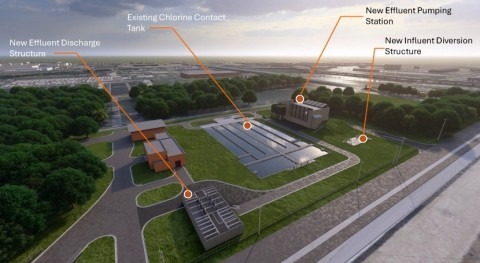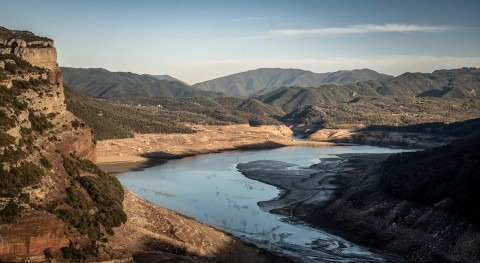New Mexico’s Water Quality Control Commission is moving closer to finalizing regulations that would allow pilot projects for the treatment and reuse of “produced water”, the highly saline wastewater generated during oil and gas extraction. The move comes amid increasing pressure to find alternative water sources in the drought-prone state, but also deep concerns over public health, environmental safety, and regulatory transparency.
As reported by the Santa Fe New Mexican, last week Governor Michelle Lujan Grisham signed House Bill 137 — the Strategic Water Supply Act — which provides funding for brackish water projects. However, the reuse of fracking wastewater was excluded from the final version in response to concerns voiced by lawmakers and stakeholders. Despite the omission, Lujan Grisham has said she remains committed to advancing research for produced water treatment, a critical tool for ensuring water security in New Mexico.
The Produced Water Act, enacted in 2019, tasked New Mexico’s Water Quality Control Commission with creating rules for reusing wastewater from oil and gas operations. A 2023 feasibility study by the Environment Department found treated produced water could conserve fresh water but highlighted challenges like limited knowledge and high treatment costs.
The Commission’s rule would allow pilot projects through 2030. The Commission will vote on a final version next May. “Frankly, I am persuaded by the evidence that the Environment Department has presented, that treated produced water can in some form be regulated,” Commissioner William “Bill” Brancard said. “We’re just not there.”
New Mexico’s effort to launch produced water treatment projects may reflect a broader federal initiative aimed at increasing produced water reuse nationwide. Last month, the EPA said it will evaluate modern technologies and management strategies to provide regulatory flexibility for oil and gas wastewater to be treated for beneficial reuse.
The pilot project framework in New Mexico has stirred debate. The New Mexico Oil and Gas Association, while not commenting directly, previously argued in a court brief that “reusing produced water could provide a ‘much needed’ water source”.
Critics are concerned the rule would allow pilot project to discharge produced water into groundwater without a full understanding of its chemical makeup. “There was extensive evidence presented during the hearing about how we don’t know what’s in this produced water,” said Rachel Conn, deputy director of Amigos Bravos, a water protection nonprofit. “And if we don’t know what’s in it, how can we know that we are treating it effectively?”
Drew Goretzka, Environment Department spokesperson, countered that the decision is grounded in science. “The Water Quality Control Commission’s decision to allow groundwater discharge permits for pilot projects reflects the Commission’s understanding of the dire need for science-based, water reuse opportunities,” he wrote.
Still, groups like New Energy Economy consider there were still major decisions remaining — namely, guardrails around pilot projects. Their Executive Director Mariel Nanasi argued the commission’s decision to rely on a “notice of intent” rather than requiring full permits violates the 2019 Produced Water Act.



















